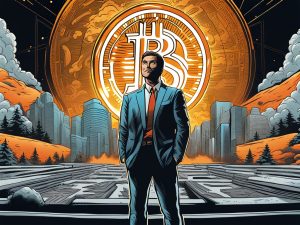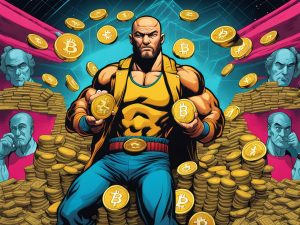Elon Musk Shares His Thoughts on NFTs
Elon Musk has once again expressed his opinion on Non-Fungible Tokens (NFTs), the digital media linked to blockchain. During the bull market of 2021, NFTs gained popularity, with “jpegs” being traded for millions of dollars in cryptocurrencies.
On December 27, Musk responded to a comment on his platform, X (formerly Twitter), regarding NFTs. In a previous podcast appearance, Musk had suggested that JPEG images should be encoded in the blockchain to prevent loss if the hosting company goes out of business.
Understanding Musk’s Criticism and the Existing Solution
Musk’s criticism stems from his understanding of how the NFT market works. Currently, centralized databases store images (jpegs) that are linked to non-fungible token hash IDs on a specific blockchain. This means that investors trade and hold the hash IDs rather than the actual media.
However, there are solutions available to address this issue. Some blockchain projects and infrastructures directly inscribe media like jpegs, videos, and music into the blockchain itself. This eliminates the need for a centralized database and allows investors to own and trade NFTs without intermediaries.
For example, Leonidas (@LeonidasNFT) recently inscribed Elon Musk’s video clip as an Ordinals Inscription NFT on Bitcoin’s blockchain, demonstrating an alternative approach.
The Future of NFTs
The technology surrounding NFTs is constantly evolving, and new solutions will likely emerge over time. Many enthusiasts believe that inscribing media directly into the blockchain holds significant value as it allows for ownership and trading without relying on intermediaries.
Hot Take: The Evolution of NFTs
NFTs have become a popular and controversial topic in the crypto world. While some see immense potential in these tradeable digital assets, others criticize their reliance on centralized databases. Elon Musk’s opinion on NFTs aligns with his belief in the importance of encoding media directly into the blockchain to ensure its preservation and availability, even if the hosting company ceases to exist. This criticism has sparked discussions about the future of NFTs and the need for innovative solutions that eliminate intermediaries. As the technology continues to evolve, we can expect further advancements that address these concerns and enhance the value and accessibility of NFTs.





 By
By
 By
By

 By
By
 By
By
 By
By